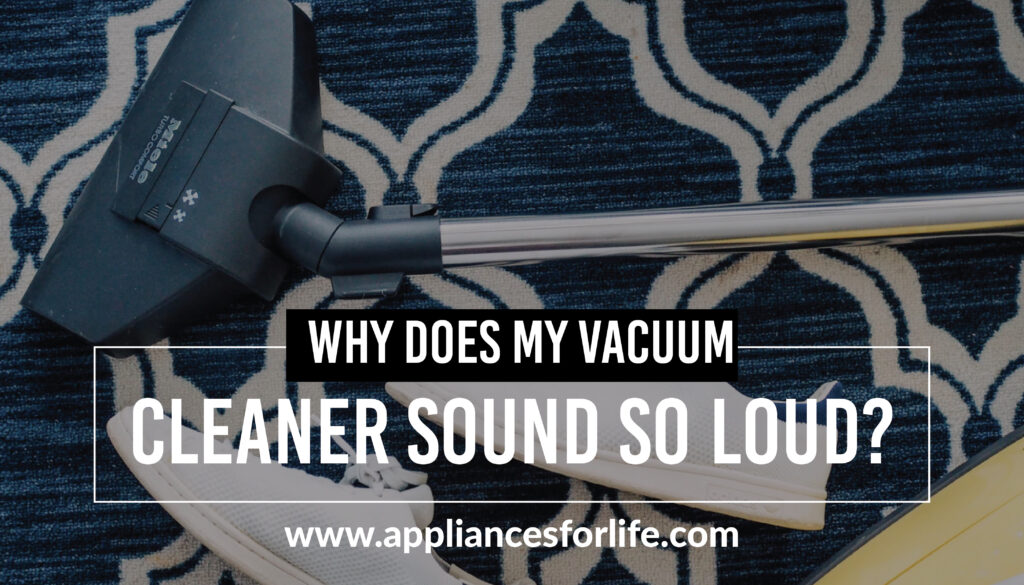- Several years ago, vacuum cleaning revolutionized the cleaning process. And since then, this technology has continued to advance and gained more adoption, especially because the technology became more powerful and automated.- Now vacuuming is an enjoyable process free of hassles.
- A Vacuum cleaner just like any other machine will develop faults if not maintained properly. Without regular maintenance, including cleaning, a vacuum cleaner stands the chance of being clogged by dirt. The blades attached to the Vacuum motor can also be destroyed if not used carefully and frequently cleaned after use. This article provides an insight into other reasons why Vacuum cleaners make excessive noise and how to solve the problem.
Imagine having to manually beat and sweep your rugs day-in-day-out for as long as one month. Onerous right?. Well, this is a task that was done regularly for centuries before the invention of Vacuum Cleaners. Floor cleaning was indeed labor-intensive in those days, shortly after early vacuums were manufactured at the start of the 1900s. These early vacuums were large machines that had long and heavy cords. As a result of their build, some of the weight was up to 100 pounds at the time.
Table of Contents
Toggle
Eventually, we moved from these large vacuum cleaners to ones with better ergonomics; some of them are even cordless. It is understandable that we’ve come a long way from manual vacuum cleaning to using vacuum cleaners with cords but regardless of this leap in technological advancement, there is no doubt that traditional vacuum cleaning was riddled with a lot of discomfort and hassles.
Following the difficulty that ‘heavy vacuuming’ posed, there was a need to introduce some ease and effectiveness to vacuum cleaning, and ‘viola’, we have cordless vacuum cleaners. The best vacuum cleaners are so versatile that they can handle different kinds of flooring, reach every corner of your closet because they’re easy to maneuver, and leave your upholsteries spotless because of their impressive suction ability.
How a Vacuum cleaner Works
A Vacuum cleaner works using a suction mechanism. In the simplest terms, suction force helps a Vacuum cleaner extract dirt from floors and rugs. Imagine suction as the force you apply to extract liquid through a straw. To put into perspective, when you sip soda through a straw, you are utilizing the simplest of all suction mechanisms. In the process of sucking the soda up, there is a pressure drop between the bottom of the straw and the top of the straw. Hence, with greater pressure at the base of the straw than the top of it, the soda you are sipping is forced up to the top of the straw.
Undoubtedly, the execution is far more complicated than your soda sip but a vacuum cleaner works effectively on the same principles. The elegant and standard design of a Vacuum cleaner helps it to put suction to work, hence to understand how this works, one will have to critically look into a Vacuum cleaner and understand how its components interact. In this article, we’ll look inside a vacuum cleaner to find out how it puts suction to work when cleaning up the dust and debris in your house.
The structure and workings of a Vacuum cleaner may look really complicated but the conventional vacuum cleaner is actually made up of four essential components. They are; The Suction Motor, Brush, Dust Collector, and Exhaust Filter.
The Suction Motor: This is the most important part of a Vacuum cleaner. It is the engine that makes suction possible. When you plug the Vacuum cleaner and turn it on, electric current flows into the motor, operating it. Attached to this motor are fan blades- angled blades that turn and spin forcing air forward, toward the exhaust port. When air particles are driven forward, the density of these particles increases in front of the fan but decreases at the same time behind the fan. This creates suction, a partial vacuum, inside the vacuum cleaner. The ambient air pushes itself into the vacuum cleaner through the intake port because the air pressure inside the vacuum cleaner is lower than the pressure outside.
In simpler terms, the Samsung Newsroom explains that ”The suction motor creates vacuum pressure and suction by rotating a motor fan. The impeller rotates at an incredibly high speed of about 30,000 to 35,000 RPM. A suction motor’s power is measured by multiplying the rate of airflow and the vacuum pressure, which induces airflow from the brush through the hose”.
The Brush: It is important to first note that a vacuum brush has different nozzles and each nozzle is designed to cater to specific floor types and certain kinds of debris. Some nozzles are even specifically designed for tight spaces. Hence, using the right kind of brush may save you some time and effort when cleaning.
The brush of a vacuum cleaner is that part that rubs against your flooring and it has the tract through which dust travels to the dust bag. There are two major types of brushes- The two-step brush and the electric brush.
The Dust Collector: The term ‘dust collector’ implies that this is the part of a Vacuum cleaner that collects debris and dust sucked in by the Vacuum motor. There are two types of this dust collectors; one uses a bag while the other is bagless. The bagless is further divided into the single cyclone type and multi-cyclone type. The single cyclone collector is a bit heavier than a dust bag vacuum, but it sustains suction power longer without changing a bag. The multi-cyclone type, on the other hand, is heavier and has a more complicated structure inside, but maintains its suction power longer than a single cyclone.
The Exhaust Filter: The Vacuum filtration system works in three interconnected stages. In the first stage, large particle debris is filtered out by either a vacuum bag or a bagless cyclone. In the second stage, a relatively smaller particle of dust is also filtered out by a microfilter, leaving fine dust or carbon powder to be captured by the exhaust filter in the final stage of filtration. After these processes, clean air then passes out of the vacuum.
Reasons Why a Vacuum Cleaner Can Become Really Loud.
It is natural for a Vacuum Cleaner to make a humming sound while it works but this sound is not expected to be excessive in any way. When it is becoming a noise, you know there is a fault that needs fixing. Vacuuming may not be interesting to many but when it has to come with the burden of some offensive noise, it becomes unbearable even for those who love vacuuming. Below are some of the reasons why your Vacuum cleaner can become excessively noisy.
Dirty Filter and Clogs
Typically, vacuum cleaners have one or two filters. One filter is near the debris bag on standard vacuums. The other filter may be a HEPA filter. When you notice that the noise that your Vaccum makes is excessive, it may be because one of these filters is saturated with dirt. For a Vacuum to function properly without making too much noise, the vacuum filter has to be free from dirt and debris. Therefore, it is important to inspect the filter regularly and clean it up because of loud sounds from the vacuum cleaner. To do this, simply remove the filters in your vacuum, rid them of the dust and debris and rinse them out with warm water. Replace the filters once they are dry, and your vacuum should run at its normal sound level.
Another reason your Vacuum cleaner may be making a lot of noise is that an object may be obstructing the air particles, traveling through it. Usually, when this happens, the clog makes the vacuum work harder, hence making a lot of noise. Most times, these clogs are found in the tubes of your vacuum cleaner, hence check the tube for any objects and get rid of them with your hands. However, if it is a tough log, try removing it with a knitting needle or stick. If the clog is bad, take the vacuum cleaner to the repair shop.
Broken Brush Bearing
A brush bearing is an integral component of a Vacuum cleaner. Without this bearing, the brush at the base of the Vacuum will not function as it should. Hence, When a brush bearing breaks, the vacuum cleaner gets loud and starts to vibrate. To remedy the problem, remove the brush and replace it. If you can not replace this bearing by yourself, make sure to contact a technician for a replacement.
Broken Fan
Inspect the motor in your vacuum to confirm that the fan in it is not broken, causing the vacuum to run louder than normal. When dirt runs through the motor of the vacuum, it can collect on the fan, causing it to break. If the fan in your vacuum motor is broken, it will need to be replaced. Again, you can do this repair yourself. But if you don’t feel comfortable making the repair, take the vacuum cleaner to the repair shop.
How to reduce the sound of a vacuum cleaner
Conventional Vacuum cleaners are generally loud. They make some noise in the process of suction but it is always possible to hear when the vacuum is making too much noise-It would not just sound like the normal noise of a machine anymore. This excessive noise can sometimes be avoided through regular maintenance, however, if the deed has already been done and the machine now makes too much noise in the process of suction, all hopes may not be lost. Before you throw the machine away, first try to find the source of the noise. Shut the machine off to see if the noise was caused by a large object in the hose. Also try using other brush attachments, as broken bearings in a brush attachment will cause noise. If these troubleshooting techniques do not work, you may need to service the engine. Below are the steps you may attempt to fix your vacuum cleaner by yourself.
Step 1
Remove the dust filter and dust collector bag from the machine. Make sure they are not dirty. If they are found dirty, remove the dirt in them and get rid of any objects that may be clogging these parts of the machine. Excessive debris will make the engine run noisily. If this sound persists, visit a technician to solve those vacuum cleaner sound problems
Step 2
The hose of the Vacuum may be holding up dirt or be clogged with an object, hence, Inspect the hose of the vacuum and remove any large debris that may be clogging the inside of the tube. Large amounts of dust, as well as stones or other hard materials that bounce, may cause a loud noise in the engine.
Step 3
The fan attached to the motor of your vacuum may be damaged. Hence, remove the housing that holds the motor of your machine and inspect the fan for any ruptures and clogging. Remove any dirt that may hinder the movement of the fan and clean it thoroughly. However, if the blades are damaged or dented in any form, you will have to get a replacement. Contact your vacuum manufacturer if the fan is damaged. The replacement part will include instructions.
Step 4
Your fan blades may loosen up after frequent use. Inspect the fan to make sure it is not loosened, if it is loosened, however, tighten the blades back to the motor because a loose fan will make a rattling sound as the motor revs.
Step 5
Wipe dirt and dust from the frame of the engine. Large quantities of dirt or dust around the motor can cause it to overheat, which can cause vibration and loud noise.
Step 6
If your vacuum makes a grinding noise, grease the bearings of the engine. Greasing is often performed through ports in the engine, or by removing the bearings. However, the actual greasing method is model-specific. Consult your owner’s manual or send the vacuum to a service professional for this service.
Step 7
Wears and tears are necessary occurrences in an operational machine. Hence, you may need to inspect the inside of the vacuum cleaner from time to time for worn-out parts or broken pieces in your vacuum cleaner. Remove the broken part and order new materials from the vacuum manufacturer or take the machine in for service.
Some of The Best Vacuum Cleaners Out There:
Dyson V15 Detect
The versatility of the Dyson V15 Detect is unspeakable. Its ergonomics afford a hassle-free vacuuming experience. It is lightweight and maneuverable to reach every corner of your closet. More importantly, the Dyson V15 delivers an exceptional cleaning performance on a low pile carpet.
Its high suction power may pose a bit of a problem on high pile carpets but this incredible suction power also makes it a perfect fit for car, workshop, pet hair, and bare floor cleaning.
Finally, It also comes with a wide range of tools and accessories, including a crevice tool to tackle messes in tight corners and a conical turbo brush to clear messes on automotive upholstery.
Tineo A11 Hero
The Tineo A11 Hero is also a top-quality cordless vacuum cleaner. You just need to experience its sleekness and lightweight for you to be able to tell why I recommend it.
This vacuum cleaner is agile and it was easy to navigate around the home to suck up dirt and debris on the floor and stairs. It can even be used on the ceiling for cobwebs, and at around five pounds, it still felt lightweight. It also totals ease in waste disposal as Its dustbin is almost as easy to empty as the Rocket Pet Pro.
With the Tineo A11 Hero, you won’t have to get your fingers numb because there is a handy trigger lock lever to keep the vacuum running without constant finger pressure.
FAQs
How Do Upright Vacuum Cleaners Work?
An upright vacuum cleaner uses a motor and a fan to pull extract dirt and debris from a surface and deposits it in the Vacuum dirt collector after it must have been filtered by the Vacuum’s dirt filter. Dirt is loosened and swept into the vacuum with a rotating brush called the beater bar. Finally, an upright vacuum is operated easily using the handle
How Long Do Vacuum Cleaners last?
Both Upright and Canister Vacuum cleaners last 8 to 12 years, depending on their quality, how often it used and other general maintenance. By maintaining and repairing your vacuum cleaner as needed you can extend its service life and reduce its actual cost.
How do i know if my Vacuum suction is powerful?
If you want to quickly test the suction power of your vacuum cleaner, try switching the cleaner to “carpet mode.” Power on the unit and let it run on maximum power. Try attaching the floorhead to a wall. If you have a high suction power device, it should stay attached to the wall without any external support.
24 MINUTES
ESTIMATED TIME DESIGNING AND UPLOADING THIS ARTICLE
10 HOURS 26 MINUTES
ESTIMATED TIME RESEARCHING AND WRITING THIS ARTICLE
You Might Also Like

Stand Up Lamps to Brighten Your Home
Stand up lamps are a great way to brighten any part of your home. A lot of times when furnishing their homes, consumers tend to be (understandably) concerned about beds, mattresses, dressers, tables, kitchen items, washers, dryers, etc. Sometimes the lighting aspect of home maintenance

Best Blender for Peanut Butter
Peanut Butter contains more nutritional benefits than you think. From maintaining body weight to preventing heart disease, peanut butter can save your life by consuming it moderately. Unfortunately, how to make perfect peanut butter may always be a lingering concern if you do not get

The Best Vegetables and Fruits to Juice – Recipes and Health Benefits
Did you know that having a few glasses of homemade juice a day could well and truly cover more than the general intake of vitamins and minerals your body needs to stay healthy. Literally every type of fruit or vegetable can be juiced with ease

What Kind of Blender Does Starbucks Use?
It’s only normal that people want to have the exact blender the world’s largest coffeehouse chain uses in their kitchen. In this article, we’re going to be exploring the popular Starbucks blender type and where you can get it in your home. A company as

Commercial sink faucets are essential purchases because you need them in your kitchen to wash produce, clean your dishes, and get water to drink. You need sink faucets to wash your hands in each bathroom and for necessary everyday needs such as showering, watering your

How many watts does a washing machine use?
Using a washing machine may seem so direct and without complications, but you’ll be wrong to think you know all there is to be known about your machine already. If the question ‘how many watts does a washing machine use’ has ever popped up in

How Does A Pressure Cooker Work?
The Question Many people looking for a way to diversify their plethora of cooking options will eventually have to ask themselves: how does a pressure cooker work? Although most people tend to think of pressure cookers as being a “turn it on and walk away”

The concept of food processing has been given more importance over the years, and it’s safe to say the concept is just getting the recognition it deserves after spending so many years in the shadows. For many years now, people have known food processing to

What to Use to Clean Microwave?
Maintenance plays a great role to ensure durability. Even if you invest in a naturally durable appliance but you don’t maintain it the right way, it’s only a matter of time before it loses its value. In this article, we’re going to be reviewing what

Rinnai Tankless Water Heater with Recirculating Pump
Tankless water heaters are growing so popular that it’s no longer a matter of whether one needs one anymore; it’s now a matter of which model one needs to get. Modern or not modern, the world is growing increasingly frustrated with tank-style water heaters that

